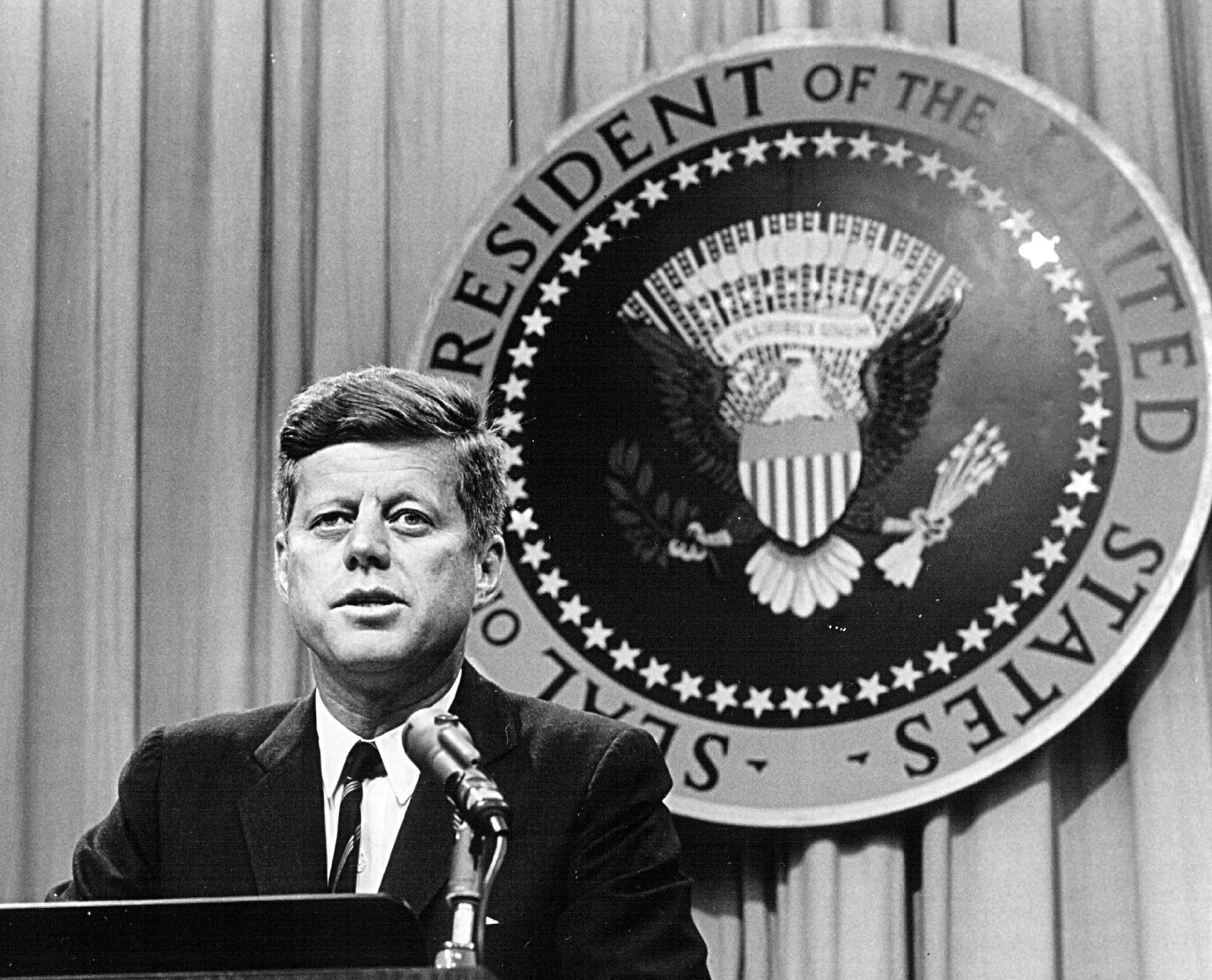
National Archives / Handout- Getty

Audio By Carbonatix
Earlier this month, the National Archives released thousands of formerly classified documents gathered during the government’s review of the assassination of President John F. Kennedy in Dallas in 1963.
The latest release of more than 13,000 documents was ordered by President Joe Biden after it was delayed because of the COVID-19 pandemic. Another batch of documents was released last year as part of that order. But about 3% of the documents are still redacted fully or in part. Some say unless all the documents are released, speculation and conspiracy theories about the JFK assassination will continue to live.
The President John F. Kennedy Assassination Records Collection Act of 1992 set a 2017 deadline for the release of all classified documents related to the assassination. That year, however, then-President Donald Trump waived the deadline, leaving researchers and archivists to wait even longer for the documents’ release.
The Biden Administration said that the release of all of these documents was important to transparency about the assassination of JFK.
“[T]he profound national tragedy of President Kennedy’s assassination continues to resonate in American history and in the memories of so many Americans who were alive on that terrible day; meanwhile, the need to protect records concerning the assassination has weakened with the passage of time,” the White House said in a memo. “It is therefore critical to ensure that the United States Government maximizes transparency by disclosing all information in records concerning the assassination, except when the strongest possible reasons counsel otherwise.”
“This release is much like those in 2017, 2018, and 2021, and is nowhere near the full disclosure required by law.” – Mary Ferrell Foundation
In the memo, the White House said the National Archives and other agencies have until May 2023 to review the rest of the unreleased documents. Unless agencies recommend further delays, the memo said the remaining documents would be released before June 30, 2023.
The largest online source for these records in the U.S., the Mary Ferrell Foundation, sued President Biden and the National Archives in October for the release of the remaining JFK assassination documents. Mary Ferrell was working as a legal secretary in downtown Dallas at the time of the assassination, and she and her sons began compiling a massive, highly regarded library of information related to the assassination until her death in 2004 at the age of 81.
According to NBC News, the lawsuit sought to void Biden’s order and have all of the records released. The suit also claims specific documents have been unlawfully redacted by the federal government. According to the lawsuit, these include a 1961 memo about reorganizing the CIA after the failed Bay of Pigs invasion in Cuba, files on three CIA officers tied to accused assassin Lee Harvey Oswald and a 1962 Defense Department false flag plan called Operation Northwoods that called for staging a violent incident in the U.S. to be blamed on Cuba. The suit claims records regarding plots to assassinate Cuban dictator Fidel Castro and a JFK-related document from Watergate burglar E. Howard Hunt’s security file were unlawfully redacted as well.
Also at issue in the suit is the release of 44 other documents related to a CIA agent named George Joannides. He ran a covert Cuba-related program that allegedly came into contact with Oswald some four months before the assassination of JFK.
In a statement about the latest batch of documents on its website, the Mary Ferrell Foundation said about 15,000 documents still haven’t been disclosed.
“Unfortunately, in many thousands of cases the new document simply features fewer redactions than previously (and in many cases there is almost no change),” the foundation’s statement said. “This release is much like those in 2017, 2018, and 2021, and is nowhere near the full disclosure required by law.”
During a press conference held by the foundation, U.S. District Judge John Tunheim, who chaired the Assassination Records Review Board established in the ’90s, said continuing to withhold these documents only allows conspiracy theories about the assassination to flourish. The review board was established under the President John F. Kennedy Assassination Records Collection Act of 1992.
“These are records related to the assassination of an American president that carry an enormous public interest,” Tunheim said. “This congressional mandate occurred in 1992. That’s a long time ago. The assassination was 59 years ago. That’s a long time ago. It’s time to release everything and stop with the redaction process.”
The White House memo explained that records could still be shielded from disclosure when “necessary to protect against an identifiable harm to the military defense, intelligence operations, law enforcement, or the conduct of foreign relations that is of such gravity that it outweighs the public interest in disclosure.”
Ahead of the release, several federal intelligence and law enforcement agencies had to submit letters to The White House requesting that documents continue to be withheld.
“All information in CIA’s JFK Act collection about President Kennedy’s assassination itself has been previously released,” the CIA wrote in its letter to the White House. “What remains redacted in the documents in this collection are not related to the assassination itself, but rather are primarily post-assassination documents and details which remain classified concern intelligence sources and methods of current relevance.”
But, Tunheim said he thinks it’s unnecessary to continue to withhold the documents given that many people involved are not alive today, and because sources and methods have likely changed so much. He thinks the issue should be taken up by Congress again.
“I think it’s necessary at this point, because we still face these issues of protection of information, that Congress hold a hearing, perhaps even more than one,” he said. “Let’s get this issue out on the table and determine why 25 years after the fact we still see significant redactions in records that, for all practical purposes, should have been released a long time ago.”